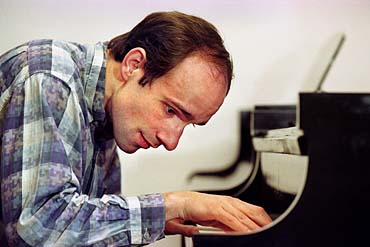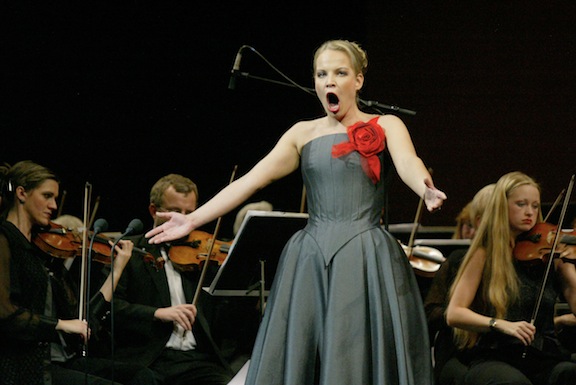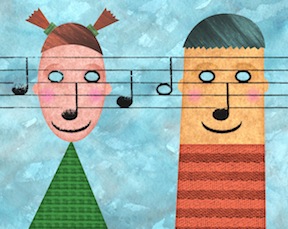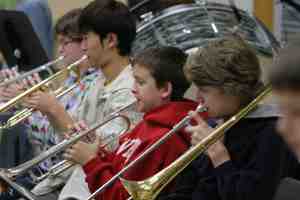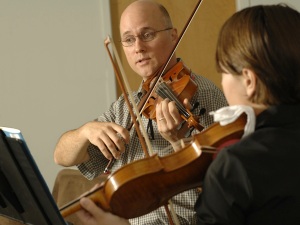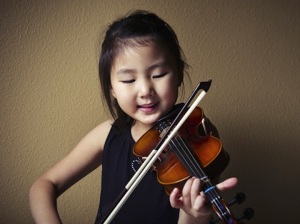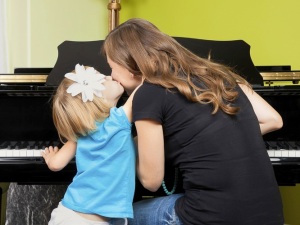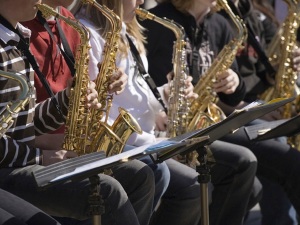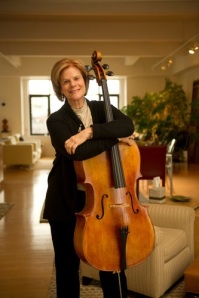The Well-Tempered Ear
One piano lesson made all the difference
1 Comment
PLEASE HELP THE EAR. IF YOU LIKE A CERTAIN BLOG POST, SPREAD THE WORD. FORWARD A LINK TO IT OR, SHARE IT or TAG IT (not just “Like” it) ON FACEBOOK. Performers can use the extra exposure to draw potential audience members to an event. And you might even attract new readers and subscribers to the blog.
By Jacob Stockinger
Not long ago, NPR and Wisconsin Public Radio featured a moving story from the website “Hidden Brain” and its series of profile called “My Unsung Hero.”
It told the simple story of a single piano lesson — and how just one short sentence at this piano lesson proved both ordinary and momentous – and made all the difference, changing the course of a young boy’s life.
The Ear found it inspiring. And it provoked some of his own memories of important music lessons and music teachers as well as other subjects and other influential teachers in school.
He hopes you will also like it and share it, perhaps with a friend who had a similar experience or with a special teacher who influenced you and made an important difference in your life.
Here is a link:
Did you ever have a similar experience with a music teacher and music lesson?
Or find an “unsung hero” in music or another field of education who made a big difference?
Please tell us about it.
The Ear wants to hear.
Tags: #BlogPost, #BlogPosting, #FacebookPost, #FacebookPosting, Arts, big, blog, boy, Brain, Classical music, difference, Education, Facebook, hear, hero, Hidden Brain, influence, Jacob Stockinger, lesson, life, Madison, Music, Music lesson, My Unsung Hero, National Public Radio, NPR, ordinary, Piano, piano lesson, piano teacher, sentence, share, short, simple, single, special, story, tag, Teacher, tell, The Ear, The Well-Tempered Ear, Website, wisconsin public radio, WPR
Classical music: Making music is healthy for you, researchers say. It can lower blood pressure and increase a sense of well-being. You can even start music lessons as an older adult.
7 Comments
By Jacob Stockinger
Talk about art therapy!
A close friend has often told me how the German army in World War I gave double rations to the piano players because they used so much energy doing their job of entertaining the troops.
I have never been able to prove the story. But it makes a lot of sense to this amateur pianist. I know the physicality of playing, and it takes stamina as well as finesse. And it involves both body and mind. (Below in a photo of University of Wisconsin pianist Christopher Taylor, whose playing is particularly physical and energetic, as you know well if you saw his recent astonishing recital of Franz Liszt‘s extremely virtuoso transcriptions of Beethoven’s Fourth Symphony and Fifth Symphony.)
Contemporary researchers have taken an interest in studying how music affects one’s physical and mental health as well as social well-being, especially now that researchers can track changes through MRI and CAT scans.
Here is more good news: The suggestion, or even proof, by Dutch researchers that playing music lowers stress and lowers blood pressure. (Other studies show that listening to music also has benefits. But the one I am discussing dealt specific with actual music-making.)
Here is a link to the study:
http://www.psmag.com/blogs/news-blog/playing-music-may-lower-blood-pressure-51779/
And that story has a link to another study, done in Britain, that talks about the heightened sense of well-being one gets from making music – playing the piano or some other instrument or singing. And we know that conducting is particularly aerobic and healthy. Little wonder that conductors generally live along and healthy life.
http://rsh.sagepub.com/content/133/1/36.short
The Bottom Line? Music is good and good for you.
So I say to my fellow Baby Boomers and retirees who wanted to better their health: Music lessons, anyone?
Trust me, it’s never too late.
Just look at the YouTube video below that has had more than 9 MILLION hits:
Tags: art therapy, Arts, Beethoven, Christopher Taylor, Classical music, Franz Liszt, German, Health, Jacob Stockinger, Keyboard, Ludwig van Beethoven, Magnetic resonance imaging, Mental health, Music, Music lesson, Piano, Symphony No. 5 (Beethoven), University of Wisconsin, University of Wisconsin–Madison, YouTube
Classical music education: Do early music lessons change the brain and affect language learning by older children?
5 Comments
By Jacob Stockinger
Scientists are still working at making all the connections and determining all the effects.
But a new study from Northwestern University suggests that early music lessons do indeed positively affect the structure of the brain and help older children learn other important things, including language.
In fact, music lessons may be more important than budget-cutters often think.
Here is a great round-up story that appeared in the Science Times section of the New York Times this past week:
http://well.blogs.nytimes.com/2012/09/10/early-music-lessons-have-longtime-benefits/
Classical music education: NPR offers a terrific and helpful primer of how to get children started on music lessons and keep them practicing and playing.
9 Comments
By Jacob Stockinger
School is out, for the most part, and many families will be looking for a way that children can pursue cultural enrichment activities.
Or maybe parents are looking for a way to replace what many budget-strapped schools districts have been cutting out.
For that case, music lessons might loom large – whether they are started in the summer, or the summer is an interim before music lessons start in the fall.
But parents, especially parents who themselves have no experience in music, can have a lot of hard questions:
When should children start taking music lessons?
What is the best instrument for a particular child?
How can you tell if you have found the right teacher?
How can get your child to practice without being a nag?
And how far should you be encouraging of playing and performing?
These are just some of the tips that were feature all this past week on NPR, derived from the radio show “From the Top,” which highlights and showcases young talent around the country. The series is called, in a reference to a composition by British composer Benjamin Britten, “The Young Person‘s Guide to Making Music.”
The Ear found the series – which has a lot of specifics and a lot of links – a terrific primer. Now he wonder if they will do the same for ADULT MUSIC STUDENTS since they often face difficult and confusing questions, as well as self-doubt and a lack of confidence, about starting late.
Anyway, here are some of the topics covered by the NPR series, which has performed a valuable public service and deserve all our thanks. BE SURE TO READ SOME OF THE COMMENTS AND TIPS ABOUT THE SERIES LEFT ON THE NPY BLOG ‘DECEPTIVE CADENCE.”
And if you have tips from personal or professional experience, please share them in the COMMENTS section of this blog.
Finding the right instrument for your child:
Finding the right teacher for your child:
Getting kids to practice without a fight:
How to be a supportive and encouraging parent without becoming overbearing and overly ambitious:
How to help your child through the anxiety of the nerve-wracking process of auditioning or competing in a competition?
Tags: Arts, Benjamin Britten, Child, Classical music, Education, Music, Music education, Music lesson, NPR, Parent, Teacher, Youth
Classical music: Older adults can and should start music lessons — but they must also choose the right teacher and have appropriate expectations.
12 Comments
By Jacob Stockinger
A lot of my friends and acquaintances say they would like to learn to play an instrument in their retirement years.
And much as I try to convince them to start lessons, they often decline with all sorts of reasons – should I say excuses? – about how it is simply too hard to pursue music lessons at their stage of life.
And I understand because I am an adult music student myself, albeit one who resumed lessons after many years and considerable proficiency as a child and a teenager.
Well, starting or resuming music lessons, as an adult especially, can be a tricky business.
Just ask one of us.
But I have never read a better explanation of what it means to become an adult music student or how to go about becoming one than the story by Daniel J. Wakin that appeared in last Thursday’s edition of The New York Times.
For one, it used a string player – cellist Cassandra Gordon (below), now 73 — as an example, and strings are among the most challenging instruments to start later in life, or even early in life.
For another, the story was candid in covering the rewards and the challenges that adult music students face.
But the story also covered what specific traits to look for in a good and successful music teacher for adults, which is quite different from what you look for in a teacher for children.
So if you are interested, or if you know someone who is interested, is studying music as an adult, read this story. Then send on a link to the story and maybe this blog, which has also posted other stories in the past about adult music students.
Here is a link to the latest story:
http://www.nytimes.com/2012/03/01/education/in-middle-age-reviving-dreams-of-playing-music.html
What has been your experience as ana cult music student?
Many of us would like to hear.
Tags: Arts, Education, Music, Music education, Music lesson, New York Times, Student

